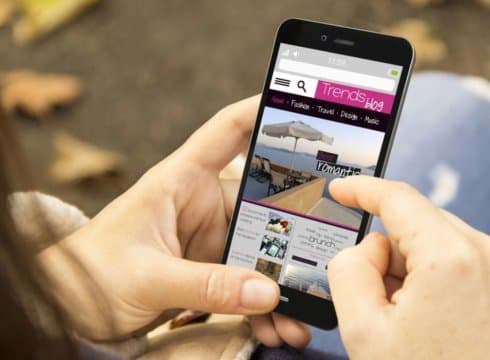Inc42 Daily Brief
Stay Ahead With Daily News & Analysis on India’s Tech & Startup Economy
Communication between humans has evolved over last 5,000 years – from the use of smoke signals and drums in ancient times to the use of mobile phones in current times – has not only changed the speed of communication, it has had a major impact on the social, economic, and political conditions of the human race.
The unprecedented change in the way we communicate in last 100 years has been much more than what it was in last 5000 years. And, thanks to mobile technology, the last 20 years have been even more fast-paced and life-changing than the last 100.
The Good
Mobile technology has had immense positive impact on our everyday lives. The use of voice calls, text messages, messaging apps on the go has brought us closer to friends and families. Smartphones have proven to be great tools for media consumption and entertainment.
Feeling bored? Play a game or watch TV or movie on your smartphone. Want to learn something? Download an educational app or search for relevant video on any video hosting service. Missing your friends or family? Video call them to see and talk. Looking for a new job? Search and apply using your phone. All this has brought us closer to our loved ones and enriched our lives with content and services which were hard to get by earlier.
The wider benefits other than personal communication and content consumption are even more profound. The use of telemedicine, for example, is helping people in remote parts of the globe to get access to physicians and medical experts with the help of their humble mobile phones. People who did not have access to banking services are now able to use these services using their mobile phones.
Farmers, who were often duped by middlemen because real prices of their products were never available to them, are now beginning to adopt mobile technology with help of government services to sell their products at actual market prices. Governments across the globe are using mobile technology to listen to public viewpoint and root out corruption at various levels of the government machinery.
We are witnessing a historic sea change for good in the way world functions – how countries, societies, and individuals interact and consume content and services within the social, economic, and political setting.
The Bad
The flip side of this mobile revolution is worrying – the more we are ‘coming closer’ to our loved ones by being always a message away, the more we are moving away from them at a more human level. We now prefer to do group chat on a messaging service than to hang out with friends and have good time. We seem to be giving more importance to the message that we just received on our phone than pay attention to person sitting across the table.
We are getting glued to the grid.
Kids born with smartphones and tablets around them are finding it difficult to move away from these gadgets as they grow older – their attention span and focus is negatively impacted because of the constant use of mobile phones. They hardly notice what is going around them and prefer to live in their own cyber world. As this generation grows into adulthood, their interactions, behaviour and social attitude are bound to be different and perceived weird by older generation.
Parents need to be made more aware of how to manage and limit screen time for their kids and keep them more ‘social.’
The Ugly
Probably the least studied impact of mobile technology is its impact on the environment and human health. The biggest problem is the lack of e-waste recycling infrastructure and procedures, especially in emerging countries. Dwindling bird population in various parts of the globe has been attributed to cell towers and radiations. Some studies have loosely concluded the impact of cell phone radiations have on the human brain.
In summary, mobile phones and mobile technology are contributing immensely to the development of inhabitants of planet earth and, with like any other exponentially adopted technology, their benefits do need to be extracted but along with that, the negative impact needs to be consciously mitigated.
About The Author
[The author of this post is Puneet Narang – is a former Vice President (Mobile Distribution Division) at Brightstar Corporation.]
{{#name}}{{name}}{{/name}}{{^name}}-{{/name}}
{{#description}}{{description}}...{{/description}}{{^description}}-{{/description}}
Note: We at Inc42 take our ethics very seriously. More information about it can be found here.


